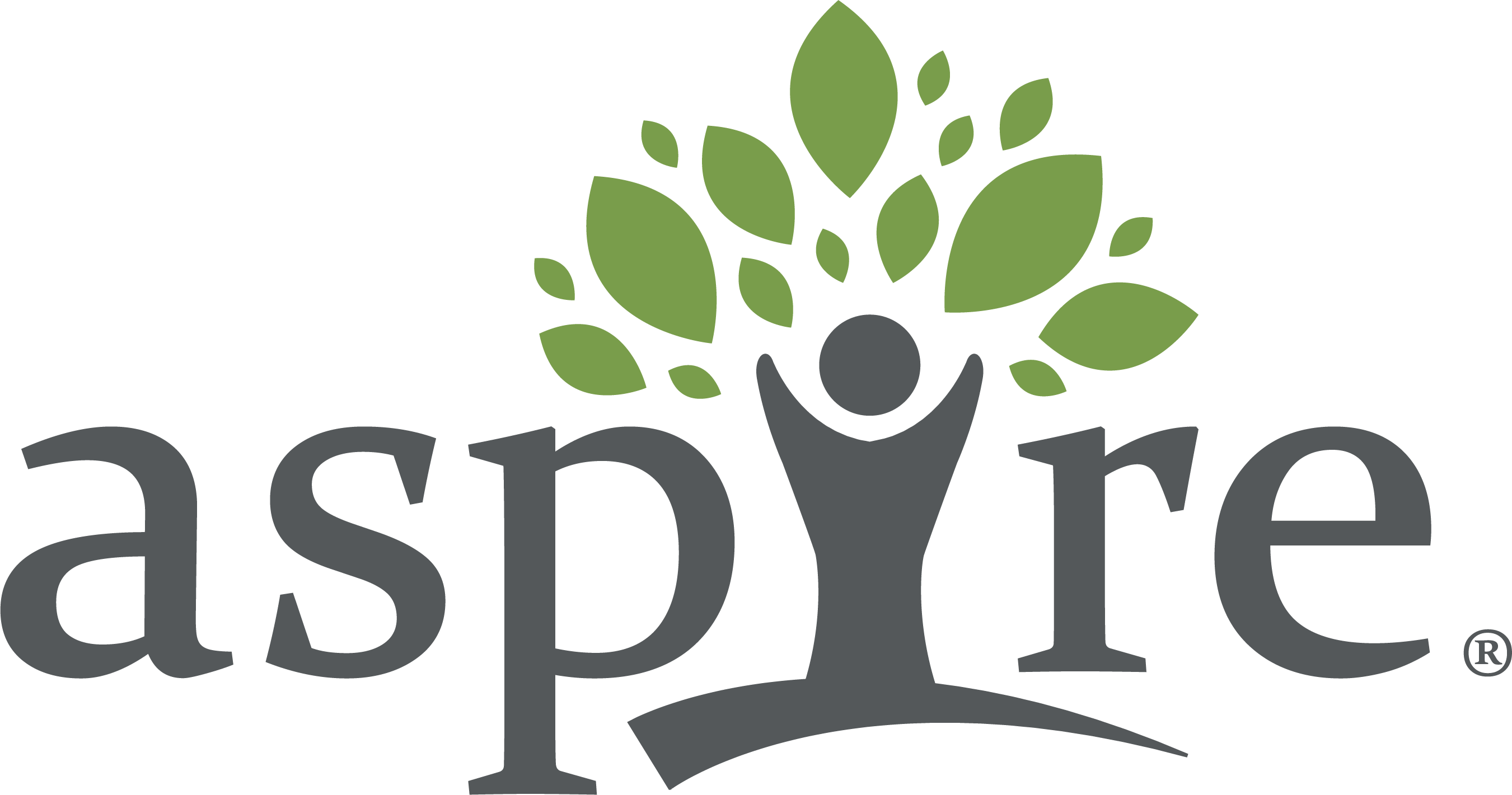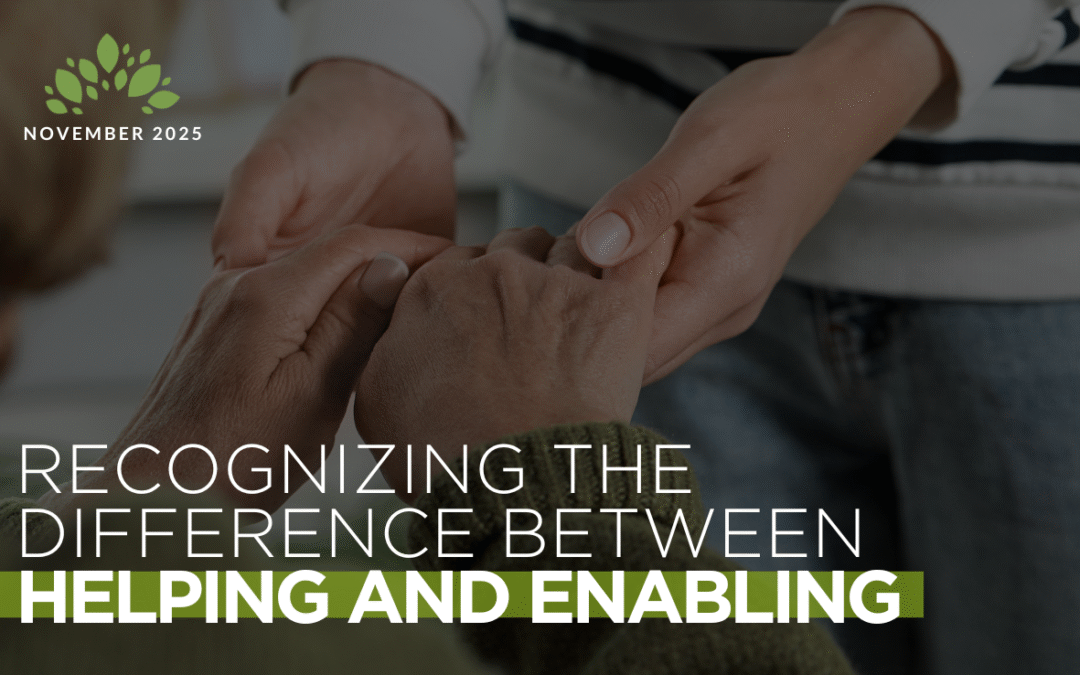When someone we care about is struggling with substance use or a behavioral health condition, the instinct to help can feel automatic. We want to ease their pain, protect them from harm, and keep their lives from falling apart. It often comes from love, compassion, and the desire to see them happy and healthy again. Yet sometimes, what feels like helping can unintentionally keep a person stuck.
Understanding the difference between helping and enabling can be difficult. The line between the two is thin and often blurred by emotion, fear, and hope. Recognizing where support ends and enabling begins is one of the most important steps toward true healing for both the person struggling and their loved ones.
What Does It Mean to Help?
Helping means offering support that encourages growth, responsibility, and healing. When you help someone, you’re giving them tools and encouragement to take ownership of their recovery and choices. It’s about empowering them to find their own strength, not carrying the weight for them.
Helping can look like:
- Listening without judgment
- Encouraging professional treatment for substance use or mental health concerns
- Setting clear boundaries
- Offering emotional support while allowing natural consequences to occur
- Participating in family counseling or support groups
True help gives a person the opportunity to take steps forward, even when it feels uncomfortable. It focuses on long-term stability, not short-term comfort.
Ask yourself: Am I helping this person move toward recovery, or am I shielding them from the consequences that could help them grow?
What Does It Mean to Enable?
Enabling, on the other hand, often looks like helping on the surface. It can come from a place of love and fear, such as the fear of seeing someone we care about struggle or the fear of losing them if we don’t intervene. But enabling prevents accountability and reinforces harmful patterns.
Examples of enabling include:
- Making excuses for a loved one’s behavior
- Covering up mistakes or lying to protect them
- Giving money that ends up supporting unhealthy habits
- Taking on responsibilities that belong to them
- Avoiding difficult conversations to keep the peace
While these actions may bring temporary relief, they often make it harder for the person to recognize the need for change. When someone never faces the real effects of their behavior, recovery becomes harder to achieve.
How to Tell the Difference
It’s not always easy to tell when support has turned into enabling. Love can cloud judgment, especially when you’re watching someone you care about suffer. Here are a few ways to recognize the difference:
Helping promotes independence, while enabling fosters dependence.
When you help, you’re giving someone the tools to stand on their own. When you enable, you might be carrying their burdens for them.
Helping supports healthy choices, while enabling protects harmful ones.
Encouraging treatment, setting limits, and maintaining boundaries are examples of healthy support. Covering up mistakes or avoiding accountability keeps the problem hidden.
Helping leads to long-term growth, while enabling maintains short-term comfort.
True help may cause discomfort at first because it requires honesty and boundaries, but it creates lasting change. Enabling may feel easier in the moment but often deepens the struggle.
Ask yourself: If I step back from this situation, am I giving this person a chance to take responsibility, or am I afraid they’ll fall apart without my help?
Why Enabling Can Be Harmful
When enabling takes over, it can trap both the individual and their loved ones in a painful cycle. The person struggling may rely on others to solve their problems, while those trying to help become emotionally drained and resentful. Over time, enabling can damage trust, communication, and the overall relationship.
Enabling can also delay recovery. Without experiencing the natural outcomes of their actions, a person may not feel motivated to seek treatment. Loved ones might begin to feel hopeless, believing that nothing will ever change.
This is why learning the difference between helping and enabling is so important. It allows you to show love in a way that truly supports healing rather than unintentionally contributing to the problem.
Aspire Counseling Services works with many families facing this challenge. Through compassionate guidance and education, family members learn how to support their loved one’s recovery without losing themselves in the process.
Ask yourself: Am I acting out of love and hope, or out of fear and guilt?
Healthy Ways to Support Without Enabling
Support doesn’t mean doing everything for someone. It can mean standing beside them while they learn to do it themselves. Healthy support is firm yet caring. It allows space for growth, responsibility, and emotional healing.
Here are some healthy ways to help without enabling:
- Set boundaries and stick to them. Boundaries protect your emotional health and provide structure. They teach your loved one that respect and accountability are part of recovery.
- Encourage treatment. Suggest counseling, outpatient programs, or support groups. A professional environment provides the structure and guidance needed for meaningful progress.
- Allow natural consequences. It’s hard to watch someone face the results of their actions, but these experiences can motivate change.
- Take care of yourself. Self-care is not selfish. Attending your own counseling or support group can help you stay grounded and resilient.
- Celebrate progress. Acknowledge even the smallest steps your loved one takes toward positive change.
Aspire Counseling Services offers group sessions, family counseling, and educational programs to help families find balance. The goal is to create an environment that supports recovery while maintaining healthy relationships.
Ask yourself: How can I show love that encourages responsibility instead of avoiding it?
How Aspire Counseling Services Can Help
Support looks different for everyone, and finding the right path can feel confusing. Aspire Counseling Services provides guidance for individuals, families, and parents who want to understand how to help effectively.
Our team offers specialized programs for both substance use and behavioral health concerns across California, with treatment centers located in Bakersfield, Fresno, Santa Clarita, Simi Valley, San Luis Obispo, and Victorville. Each location is staffed with caring professionals who understand the complex dynamics of enabling and supporting.
Treatment options include:
- Individual and group counseling
- Family and multi-family sessions
- Education and relapse prevention
- Mindfulness practices and cognitive behavioral therapy
- Aftercare and discharge planning for lasting stability
The heart of Aspire’s approach is compassion. Every person’s story is unique, and so is their treatment plan. Our team helps clients develop healthy coping skills, rebuild trust, and create a foundation for sustained recovery.
Finding Hope and Balance
Recognizing that you may be enabling someone you love can bring up guilt, sadness, or fear. It’s important to remember that these feelings are normal. You’ve been trying to help in the best way you know how. Change begins with awareness and a willingness to learn a new approach.
You don’t have to navigate this alone. Professional support can provide clarity, encouragement, and structure as you redefine what it means to truly help. When families learn to support in healthy ways, it opens the door for real recovery.
If you or someone you care about is struggling with substance use, mental health, or behavioral health concerns, Aspire Counseling Services is ready to guide you toward hope and healing. Our team is here to help you understand the difference between helping and enabling and to walk beside you as you find a balanced, compassionate way forward.
Help Available 24/7
If you would like to request an appointment or have any questions, please feel free to fill out our contact form and we will get back to you right away. By submitting, you agree to receive text messages at the number provided. Message and data rates may apply.
Phone: Text or Call us 24/7 at (888) 585-7373
Email: info@aspirecounselingservice.com
Red Ribbon Week: A Time for Action
As Red Ribbon Week reminds us, prevention and education save lives. But awareness should not end after the ribbons are taken down. Every conversation you have with your teen about mental health or substance use helps shape their future choices. Every effort to listen, understand, and support them contributes to lasting change.
At Aspire Counseling Services, we stand alongside California families in the ongoing effort to prevent substance use and promote mental wellness. Together, we can create communities where every teen feels valued, supported, and empowered to make healthy choices.
If your family is facing challenges related to substance use treatment or teen mental health, Aspire Counseling Services is here to help. We provide intensive outpatient programs and individualized care in Bakersfield, Fresno, San Luis Obispo, Simi Valley, Victorville, and Santa Clarita.
Reach out today to learn how our experienced counselors can guide your family toward healing, stability, and a brighter future.

